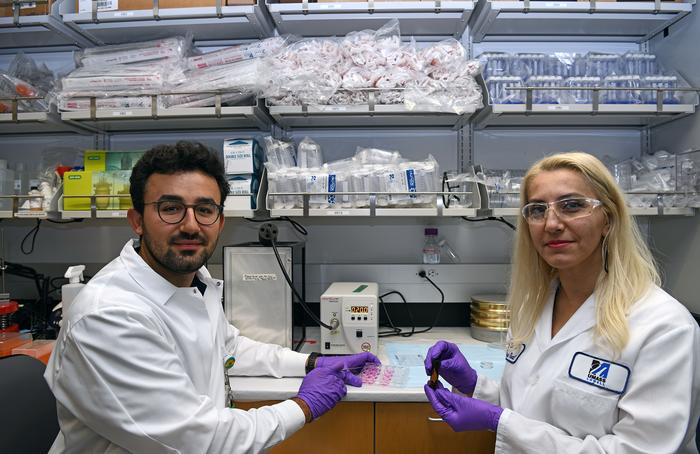Media contacts:
Emily Gowdey-Backus, director of media relations, [email protected]
Nancy Cicco, assistant director of media relations, [email protected]

Credit: UMass Lowell courtesy photo
Media contacts:
Emily Gowdey-Backus, director of media relations, [email protected]
Nancy Cicco, assistant director of media relations, [email protected]
UMass Lowell researchers are developing pancreas-like tissue to help people with diabetes
Collaborative project supported by the National Science Foundation
More than 37 million people in the country have diabetes and 1.4 million more are diagnosed with the disease each year, according to the American Diabetes Association.
A UMass Lowell scientist is hoping to improve the quality of life for those with diabetes using innovative biomaterials and engineered cells and tissues, including an insulin-producing, bioengineered pancreas-like tissue.
“Individuals with Type 1 diabetes, and more than 30% of those with Type 2 diabetes, depend on daily injections of insulin,” said Gulden Camci-Unal, an associate professor of chemical engineering, who is leading the research. “However, maintaining optimal blood-glucose levels remains a challenge and does not prevent severe long-term complications.”
Insulin, a hormone produced by the pancreas, delivers sugar in the blood to an individual’s cells, giving them energy. Diabetes is a chronic illness in which the pancreas does not produce enough insulin, or the body does not respond properly to the insulin it does produce. As a result, the amount of sugar, or glucose, in the blood of diabetes patients remains high, which can lead to serious and lifelong health complications.
The research and development of these materials by Camci-Unal is supported by a $242,000 grant from the National Science Foundation.
In the three-year project, Camci-Unal will create miniature 3D scaffolds that support the growth of insulin-producing pancreatic cells in a laboratory. The ultimate goal is to implant these cell-laden scaffolds into patients who need help managing their glucose levels. Joining her in the effort are Gokalp Kurtoglu, a UMass Lowell biomedical engineering and biotechnology doctoral student, and Emmanuel Tzanakakis, a chemical and biological engineering professor at Tufts University.
“My lab will be taking the lead in developing the appropriate synthetic biomaterials and facilitating the formation of blood vessels inside the scaffolds,” Camci-Unal said.
The researchers will use hydrolyzed collagen-based hydrogels to design and construct the scaffolds and encapsulate the engineered cells to protect them from the body’s immune system.
The team will also incorporate oxygen-generating compounds as well as cells from the lining of blood vessels into the scaffolds to help promote the formation of the patients’ vascular network. The scaffolds themselves are harmless to other cells in the body and are highly porous and biodegradable, according to Camci-Unal. They could also, one day, serve additional purposes.
“In addition to diabetes, our scaffolds have the potential for applications in engineering various other tissues such as muscle, liver and neural tissues,” she said.




